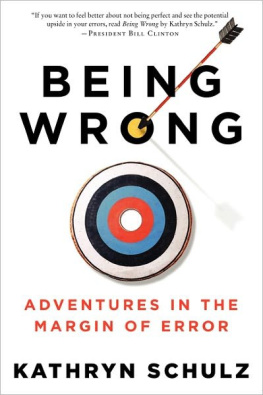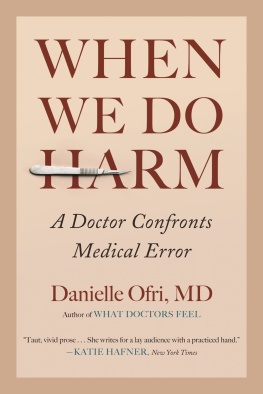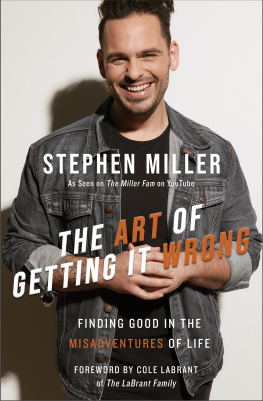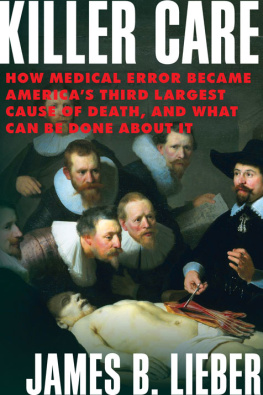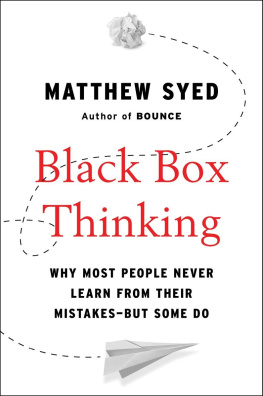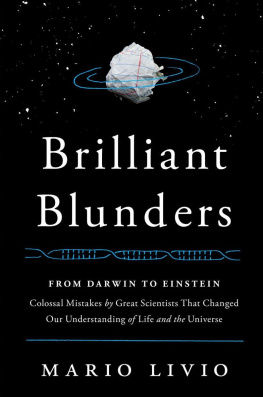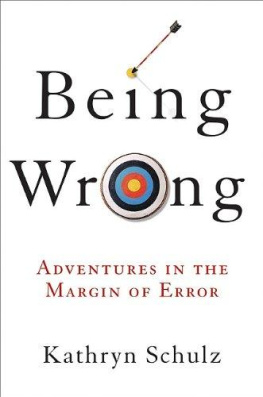Perhaps the history of the errors of mankind, all things considered, is more valuable and interesting than that of their discoveries. Truth is uniform and narrow; it constantly exists, and does not seem to require so much an active energy, as a passive aptitude of soul in order to encounter it. But error is endlessly diversified; it has no reality, but is the pure and simple creation of the mind that invents it. In this field, the soul has room enough to expand herself, to display all her boundless faculties, and all her beautiful and interesting extravagancies and absurdities.
Benjamin Franklin, Report of Dr. Benjamin Franklin, and Other Commissioners, Charged by the King of France, with the Examination of the Animal Magnetism, as Now Practiced in Paris (1784)
MAN: You said pound cake.
WOMAN: I didn't say pound cake, I said crumb cake.
MAN: You said pound cake.
WOMAN: Don't tell me what I said.
MAN: You said pound cake.
WOMAN: I said crumb cake.
MAN: I actually saw the crumb cake but I didn't get it because you said pound cake.
WOMAN: I said crumb cake.
MAN: Well, I heard pound cake.
WOMAN: Then you obviously weren't listening. Crumb cake doesn't even sound like pound cake.
MAN: Well, maybe you accidentally said pound cake. Woman: I said crumb cake.
overheard in Grand Central Station, November 13, 2008
1. Wrongology
It infuriates me to be wrong when I know I'm right.
MOLIRE
Why is it so fun to be right? As pleasures go, it is, after all, a second-order one at best. Unlike many of life's other delightschocolate, surfing, kissingit does not enjoy any mainline access to our biochemistry: to our appetites, our adrenal glands, our limbic systems, our swoony hearts. And yet, the thrill of being right is undeniable, universal, and (perhaps most oddly) almost entirely undiscriminating. We can't enjoy kissing just anyone, but we can relish being right about almost anything. The stakes don't seem to matter much; it's more important to bet on the right foreign policy than the right racehorse, but we are perfectly capable of gloating over either one. Nor does subject matter; we can be equally pleased about correctly identifing an orange-crowned warbler or the sexual orientation of our coworker. Stranger still, we can enjoy being right even about dis agreeable things: the downturn in the stock market, say, or the demise of a friend's relationship, or the fact that, at our spouse's insistence, we just spent fifteen minutes schlepping our suitcase in exactly the opposite direction from our hotel.
Like most pleasurable experiences, rightness is not ours to enjoy all the time. Sometimes we are the one who loses the bet (or the hotel). And sometimes, too, we are plagued by doubt about the correct answer or course of actionan anxiety that, itself, reflects the urgency of our desire to be right. Still, on the whole, our indiscriminate enjoyment of being right is matched by an almost equally indiscriminate feeling that we are right. Occasionally, this feeling spills into the foreground, as when we argue or evangelize, make predictions or place bets. Most often, though, it is just psychological backdrop. A whole lot of us go through life assuming that we are basically right, basically all the time, about basically everything: about our political and intellectual convictions, our religious and moral beliefs, our assessment of other people, our memories, our grasp of facts. As absurd as it sounds when we stop to think about it, our steady state seems to be one of unconsciously assuming that we are very close to omniscient.
To be fair, this serene faith in our own rightness is often warranted. Most of us navigate day-to-day life fairly well, after all, which suggests that we are routinely right about a great many things. And sometimes we are not just routinely right but spectacularly right: right about the existence of atoms (postulated by ancient thinkers thousands of years before the emergence of modern chemistry); right about the healing properties of aspirin (recognized since at least 3000 BC); right to track down that woman who smiled at you in the caf (now your wife of twenty years). Taken together, these moments of rightness represent both the high-water marks of human endeavor and the source of countless small joys. They affirm our sense of being smart, competent, trustworthy, and in tune with our environment. More important, they keep us alive. Individually and collectively, our very existence depends on our ability to reach accurate conclusions about the world around us. In short, the experience of being right is imperative for our survival, gratifying for our ego, and, overall, one of life's cheapest and keenest satisfactions.
This book is about the opposite of all that. It is about being wrong: about how we as a culture think about error, and how we as individuals cope when our convictions collapse out from under us. If we relish being right and regard it as our natural state, you can imagine how we feel about being wrong. For one thing, we tend to view it as rare and bizarrean inexplicable aberration in the normal order of things. For another, it leaves us feeling idiotic and ashamed. Like the term paper returned to us covered in red ink, being wrong makes us cringe and slouch down in our seat; it makes our heart sink and our dander rise. At best we regard it as a nuisance, at worst a nightmare, but in either caseand quite unlike the gleeful little rush of being rightwe experience our errors as deflating and embarrassing.
And that's just for starters. In our collective imagination, error is associated not just with shame and stupidity but also with ignorance, indolence, psychopathology, and moral degeneracy. This set of associations was nicely summed up by the Italian cognitive scientist Massimo Piattelli-Palmarini, who noted that we err because of (among other things) "inattention, distraction, lack of interest, poor preparation, genuine stupidity, timidity, braggadocio, emotional imbalance,...ideological, racial, social or chauvinistic prejudices, as well as aggressive or prevaricatory instincts." In this rather despairing viewand it is the common oneour errors are evidence of our gravest social, intellectual, and moral failings.
Of all the things we are wrong about, this idea of error might well top the list. It is our meta-mistake: we are wrong about what it means to be wrong. Far from being a sign of intellectual inferiority, the capacity to err is crucial to human cognition. Far from being a moral flaw, it is inextricable from some of our most humane and honorable qualities: empathy, optimism, imagination, conviction, and courage. And far from being a mark of indifference or intolerance, wrongness is a vital part of how we learn and change. Thanks to error, we can revise our understanding of ourselves and amend our ideas about the world.
Given this centrality to our intellectual and emotional development, error shouldn't be an embarrassment, and cannot be an aberration. On the contrary. As Benjamin Franklin observed in the quote that heads this book, wrongness is a window into normal human natureinto our imaginative minds, our boundless faculties, our extravagant souls. This book is staked on the soundness of that observation: that however disorienting, difficult, or humbling our mistakes might be, it is ultimately wrongness, not rightness, that can teach us who we are.

